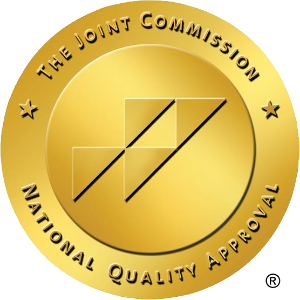Alcoholism and substance abuse is often discussed and thought of as a male disease and issue, but in reality, women all over the world also struggle with these same issues. Approximately 6.4% of women experience a substance abuse disorder, while 11.5% of men are plagued with abuse issues.
Despite the fact then men are almost twice as likely to experience a substance abuse issue, women are more likely to develop abuse issues when trying the same drug as a man. Also, addicted women face more difficulties fighting their addiction from both medical and social perspectives.
The cause of these numbers may be partly attributed to what drives men and women to abuse drugs and alcohol. Men have cited peer pressure, experimentation, and a need to destress as their main reasons. Meanwhile, women have mentioned partner or family abuse, problems with self-esteem, and high-rates of depression as the main reasons that drive them to abuse. These factors that lead to addiction shine even more light on the differences between men and women from both medical and social standpoints.
From a medical standpoint, women’s hormonal differences and fluctuations during reproductive years present a uniquely difficult set of circumstances when it comes to fighting alcohol or drug abuse. These difficulties are then compounded by the social stigma that women unfairly face. Women are often judged more harshly than their male counterparts, partly because child care is still disproportionately thought about as a women’s role.
This social stigma can result in women feeling shame and guilt about their disorders and difficulties and can limit their abilities to reach out for help. It is vital we fight back against that stigma and show that women can fight to regain their life and go on to live a full life in recovery.
In order to battle this stigma, women’s recovery needs to be discussed and explained so that people on the outside can better understand the unique challenges they face, and women who are suffering can feel empowered to reach out and get help.
Tips for Women In Recovery
As we have discussed above Women who seek treatment for substance abuse face an uphill battle from both medical and especially social standpoints. The tips below are designed to make the process more achievable while simultaneously hopefully helping reduce the stigma that surrounds women who suffer from addiction.
Barriers to Getting Help
While reaching out for help is difficult for anyone who is suffering, there are some unique challenges for women reaching out for help.
Deciding where to reach out for help can be tricky. Many rehabilitation centers do not offer women-specific programs, which can lead to women feeling alienated or even limit the effectiveness of the program.
Women also have a higher level of shame and judgment placed on them because society views them as the primary caregiver for both children and elderly parents. This perception can often restrict women from looking for help.
Women abuse drugs and alcohol due to partner relationships at a higher percentage than men, this can limit their ability to reach out for help if the partner is abusive. They simply may not feel safe explaining the root of their difficulties.
While all of these issues create a distinctly difficult path there is help out there if you are suffering.
Specific Treatment
Catering treatment specific to the unique needs of women is vital. Facilities that offer programs specifically for women focus on empowering those embarking on a life of recovery. They make sure women feel independently in control of their situation so that they can move forward in life.
To foster these feelings of empowerment women-specific programs focus on building a rapport between therapists and clients, addressing the stigma around getting help, and making sure to not find fault or pass judgment.
This initial step on the journey to recovery gives women the tools they need to fight back against their addiction and move forward in their life.
Healthy Habits
Women often achieve initial recovery more quickly than their male counterparts, but unfortunately, women statistically have a higher chance of relapse due to their body makeup. To fight these relapses it is important to develop good habits.
- Say No
Saying no is extremely important and more difficult than many people think. Learning how to say no and sticking with your decision will help you avoid situations that could lead to relapse. While this sounds easy it is a skill you will need to develop over time. Reaching out to your therapist can help you master this talent.
- Treat Yourself Well
There are layers to treating yourself well and it is a key aspect that helps you stay in a positive place while on a journey to recovery.
The first aspect of treating yourself well is to forgive yourself for your past actions, it was not you making those choices it was your addiction. Forgiving yourself for these actions will help you focus on moving forward, and make fighting the stigma surrounding addiction easier to deal with.
The next aspect is to treat yourself well physically. While giving up whatever it was you were abusing will go a long way in making you feel physically and mentally healthier, it is also beneficial to clean up your diet and partake in a holistic healing approach.
Finally valuing your own feelings over the feelings of those who are not looking out for you will help you stay clean. Avoiding run-ins with people who cause you stress or may remind you of your past in a bad way will only make it more difficult to grow as a person.
- Continue Treatment
Continuing to see a therapist, attending group therapy, and talking openly with your personal support system will enable you to stay positive, empowered, and in charge. In conjunction with remaining involved in your support systems, make sure to constantly think critically about how you feel and how your triggers have changed over time.
Finding Success
Successfully embarking on a life of recovery as a woman is a journey that presents uniquely difficult circumstances. The social and medical variables can be overcome by dedicated individuals who are given the help they need.
Women-specific programs are becoming more common as the stigma is slowly stripped away from these diseases. This process is producing more and more success stories for women in recovery around the world.






